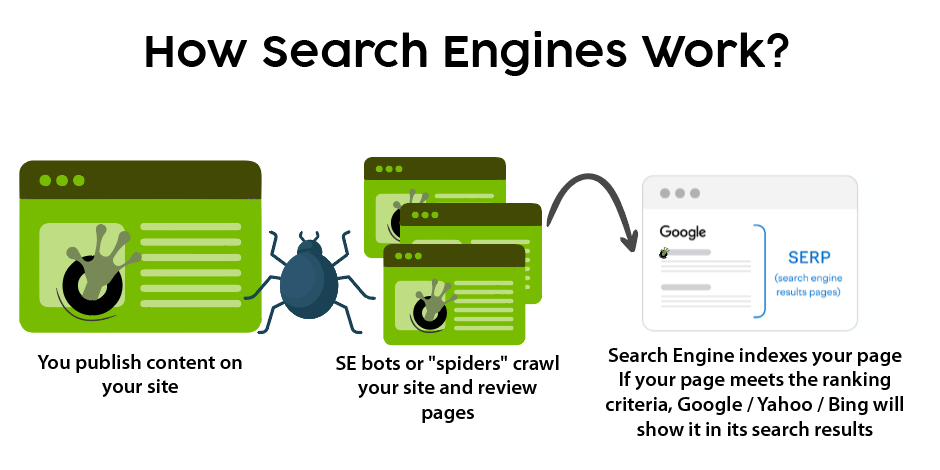As an SEO expert, I have seen a lot of changes in the industry over the years. From the early days of keyword stuffing to the rise of content marketing and the increasing importance of mobile optimization, the world of SEO is constantly evolving. However, there are two things that remain constant: the importance of technical SEO and the need for a great user experience.
Technical SEO is the foundation of any successful website. It is the process of optimizing a website for search engines so that they can crawl and index it easily. This includes things like optimizing page titles, meta descriptions, and header tags, as well as ensuring that the website is structured in a way that is easy for search engines to understand.
While technical SEO may not be the most glamorous part of SEO, it is essential if you want your website to rank well in search engine results pages (SERPs). As long as machines continue to read websites, technical SEO will remain a crucial part of optimizing a website. This is because search engines use algorithms to crawl and index websites, and these algorithms rely on technical factors like site structure and metadata to determine the relevance and quality of a website.
Highlights:
- Technical SEO is the foundation of any successful website, as it optimizes a website for search engines so that they can crawl and index it easily.
- User experience is critical to the success of a website, as it determines the overall experience that a user has when interacting with your website.
- Website speed, navigation, design, and content are all important aspects of user experience.
- Website speed is essential, as people expect websites to load quickly, and a slow website can lead to a decrease in conversions.
- Navigation should be clear and intuitive, with a menu structure that allows visitors to find what they are looking for quickly and easily.
- Design should be clean and modern, with consistent use of colors, fonts, and images throughout the website.
- Content should be well-written, informative, and engaging, providing value to visitors and answering their questions or solving their problems.
- By focusing on both technical SEO and user experience, you can create a website that is optimized for search engines and provides a great experience for your visitors.

In addition to technical SEO, user experience is also critical to the success of a website. While technical SEO may help to get people to your website, it is user experience that will keep them there. A website with a poor user experience will not only turn off visitors, but it can also negatively impact your search engine rankings.
When we talk about user experience, we are referring to the overall experience that a user has when interacting with your website. This includes things like website speed, navigation, design, and content. A website that loads slowly or is difficult to navigate will frustrate visitors and cause them to leave, while a website with great content and a beautiful design will encourage visitors to stay longer and engage with your brand.
One of the most important aspects of user experience is website speed. People expect websites to load quickly, and if your website takes too long to load, visitors will quickly become frustrated and move on to another website. In fact, research has shown that even a one-second delay in website loading time can lead to a 7% decrease in conversions.
To ensure that your website loads quickly, it is important to optimize your website’s images, use a content delivery network (CDN), and minimize the use of plugins and scripts. You should also make sure that your website is hosted on a server that is fast and reliable.
Another important aspect of user experience is website navigation. Your website should be easy to navigate, with a clear and intuitive menu structure. Visitors should be able to find what they are looking for quickly and easily, and should not have to click through multiple pages to find the information they need.

In addition to website speed and navigation, design is also critical to user experience. Your website should have a clean and modern design that is visually appealing and easy to read. The use of colors, fonts, and images should be consistent throughout the website, and the layout should be easy to understand.
Finally, content is also an essential part of user experience. Your website’s content should be well-written, informative, and engaging. It should provide value to your visitors and answer their questions or solve their problems. By providing high-quality content, you can not only improve your website’s user experience but also attract more visitors and improve your search engine rankings.

As an SEO expert, I can say that technical SEO and user experience are both essential parts of optimizing a website. While technical SEO may help to get people to your website, user experience is what will keep them there. By focusing on both technical SEO and user experience, you can create a website that is not only optimized for search engines but also provides a great experience for your visitors.







 Content Writing
Content Writing Video Marketing
Video Marketing Graphic Design
Graphic Design Lead Magnet Creation
Lead Magnet Creation Content Marketing
Content Marketing